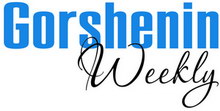EGF Middle East Briefing - Egypt’s New Political Landscape: between Democratization and Old Legacies  Claudia Nocente Claudia Nocente
EGF Researcher, Global Security
Egypt’s Islamic state on the horizon
Egypt is once again in the headlines. The results of the first, allegedly, free elections after the ousting of Hosni Mubarak as the Egyptian president are causing widespread concern, especially in the West, about the country’s process towards democratization. Many fear that the legacy of the former political establishment will haunt the country for many years to come. Egyptians have been denied any aspect of a wealthy social and political life and are now concerned about the fruits of their courageous actions and the new seeds last year’s events have implanted. What will Egypt look like a year from now? Will it end up embracing a hardline Islamist direction in the administration of political power? READ MORE
Armenia's choice in Nagorno-Karabakh: peaceful resolution or another war with Azerbaijan? 
By George Niculescu,
EGF Affiliated Expert
In the aftermath of the failed summit hosted by the Russian president Dmitry Medvedev between his Azerbaijani and Armenian counterparts, held in Kazan (Russia) on 24 June 2011, with a view to agreeing on a peaceful settlement of the "frozen conflict" in Nagorno-Karabakh, it seems that the future of South Caucasus might be threatened by the specter of a new war. READ MORE
A new regional power in the Eastern Mediterranean?
Turkey's choice between strategic partnership and competition with the West
 On 27 June 2011, a roundtable discussion in Brussels enabled an interesting debate on the future of Turkish domestic and foreign policy. While internal debate on how to deal with internal political, ethnic and religious diversity, and on the future of Turkish democracy in the third term of the AKP government is stronger than ever, Turkey might be emerging as a new regional power in the Eastern Mediterranean. READ MORE On 27 June 2011, a roundtable discussion in Brussels enabled an interesting debate on the future of Turkish domestic and foreign policy. While internal debate on how to deal with internal political, ethnic and religious diversity, and on the future of Turkish democracy in the third term of the AKP government is stronger than ever, Turkey might be emerging as a new regional power in the Eastern Mediterranean. READ MORE
Yuliya Tymoshenko's lawyers demand immediate resumption of trial 
ISSUE #32
09/26/2011
The lawyers defending former Ukrainian Prime Minister Yuliya Tymoshenko
have submitted a request for an immediate resumption of the trial.
“Today, the defense is requesting an immediate resumption of the trial so the court
can consider a petition to change the preventive measure,” Tymoshenko's lawyer
Oleksandr Plakhotnyuk stated on 21 September 2011. First and foremost, this
relates to the former prime minister's state of health, he added. READ MORE
Tymoshenko case hearings suspended till 27 September 2011 
ISSUE #30
09/12/2011
The court in the case of the former prime minister and leader of the
Fatherland Party, Yuliya Tymoshenko, has announced a break in hearings till
27 September 2011.
By doing so, judge Rodion Kireyev satisfied Tymoshenko's request to give her time
to get prepared for debates in court. READ MORE
- September 29, 2011 18:19PM
Turkey’s European Path: A Fact Finding Tool Box  By Deniz Altinbas, By Deniz Altinbas,
Assistant Professor, Ahi Evran University, Turkey,
EGF Affiliated Expert
A History of Turkey’s European Aspirations in Brief
Contrary to conventional opinion, Turkey’s interest in being part of the Western world did not start with its application to the European Economic Community (EEC). In fact, Turkey’s European orientation, diminishing as it is at present, began with the Rescript of Gulhane of 1839 (Tanzimat Fermani) and the Reform Edict of 1856 (Islahat Fermani). Among many other reasons, the major aim of the 19th century effort was the building of a Western model of state and society in wake of the declining power of the Ottoman Empire. READ MORE
Ukrainian Parliament passes pension reform 
ISSUE #25
07/11/2011
On 8 July 2011, the Supreme Council of Ukraine adopted the law on pension
reform, which was drawn up by the Ukrainian Cabinet of Ministers.
The law envisions that the retirement age for women will be gradually raised from 55
to 60 years, the work history requirement for a pension will be increased by 10 years
for both men and women and the maximum pension will be limited to 10 minimum
wages. READ MORE
EGF Turkey File Insights into Turkish domestic and international politics during June
Key Points:
- Despite the fact that the ruling AKP did not gain the electoral majority it requiredto unilaterally re-write the country’s constitution, the party continues to be the overwhelmingly dominant player in the Turkish political landscape.
- As was inevitably the case with Turkey’s position towards Libya following prolonged civil conflict in the country, Ankara’s position towards Syria is slowly but surely adjusting towards a tougher stance
- Turkey continues to keep one foot in Nabucco’s door, and the other in bilateral energy arrangements with neighbouring states. READ MORE
Court starts hearing «gas case» against Tymoshenko 
ISSUE #23
06/27/2011
On 24 June 2011, the Kiev Pecherskyy district court started a preliminary
hearing of the criminal case against Ukrainian opposition leader and former
Prime Minister Yuliya Tymoshenko.
She is accused of abusing power, which allegedly took place when she signed gas
contracts with Russia in 2009. READ MORE
Ukraine fails again to receive gas discount from Russia 
ISSUE #21
06/13/2011
On 7 June 2011, Ukrainian Prime Minister Mykola Azarov visited Moscow.
During his visit, the Ukrainian prime minister and his Russian counterpart,
Vladimir Putin, participated in a meeting of the Committee on Economic
Cooperation of the Ukrainian-Russian Interstate Commission. READ MORE
EGF Turkey File A snapshot of Turkey’s domestic and regional politics during April 2011
Key Points:
- Turkish leaders continue to navigate the ongoing “Arab Spring”, this time as it moves to Turkish borders with protests engulfing Syria.
- Turkey’s record with press freedom remains under scrutiny, as the NGO, Journalists Without Borders, condemns the country in the run-up to the June 12 elections.
- The political situation in Turkey’s southeast remains volatile, with the Turkish military breaking up large scale protests by Kurdish demonstrators in the city of Hakkari on April 25
- Suggestions by finance experts allude to the overheating of the Turkish economy, while the Turkish Central Bank’s new head moves to quell such speculation.
- The Turkish Prime Minister announces plans for an Istanbul canal that some experts say could replace the need for the country’s participation in the EU-driven NABUCCO gas pipeline project. READ MORE
EGF Turkey File A snapshot of Turkey’s domestic and regional politics during May 2011
Key Points:
- Uprisings in the Middle East continue to make diplomacy a difficult game to master for leaders in Turkey, with Syria’s potential implosion being a matter of great concern for those in power in Ankara.
- With Parliamentary elections scheduled for June 12, and the AKP seeing stronger challenges across the political spectrum, tensions are on the rise in the country. It is unlikely, however, that the AKP will face electoral defeat.
- The Nabucco pipeline continues to be mired in uncertainty as Brussels has not been able to persuade suppliers to sign on to the project. READ MORE
Victory Day festivities in Lviv turn into clashes between nationalist groups, representatives of left- wing, pro-Russian organizations, veterans, police 
ISSUE #17
05/16/2011
The celebration of the victory in the 1941-45 Great Patriotic War in Lviv turned into disturbances and clashes. On 9 May 2011, in Lviv representatives of nationalist groups clashed with
individuals who were celebrating Victory Day – members of the Communist Party of Ukraine (CPU), the pro-Russian Motherland and Russian Unity parties and veterans. In particular, members of nationalist parties attempted to prevent veterans and civilians from laying flowers at the tomb of soldiers who died in the war. For their part, the supporters of the Motherland and Russian Unity parties unfolded a 30-meter Soviet red flag, which they handed over to local veterans. Nearly 20 people were injured as a result of the clashes. A member of the Freedom nationwide organization was even shot in the leg. READ MORE
EGF Turkey File March 2011
Key points:
• In the Ergenekon case, arrests by the government on vague charges reappear, this time targeting journalists and authors. Recently two journalists were detained based on secret evidence that security officials say cannot be revealed at this time.
• Ankara continues to practice ‘Strategic Depth’ foreign policy but has largely been left behind in the Western intervention in Libya. As Syria is rocked by protests and consequent crackdowns, Turkey is largely silent, preaching stability as the top priority for the region.
• Turkey rebuffs Russian demands on a South Stream guarantee while the EU’s head of Energy, Günther Oettinger, warns Russia against intimidating Central Asian suppliers of Nabucco. READ MORE
Ukraine, EU continue talks on free trade area 
ISSUE #12
04/11/2011
Another round of the talks on setting up a free trade area (FTA) between Ukraine and the EU has been held in Brussels. During the negotiations, the parties continued their discussion of institutional, general and concluding articles of an agreement. They also exchanged opinions regarding the prospects for reaching a deal on unresolved issues. Additionally, both parties reaffirmed their intention to complete the talks on signing an EU-Ukraine association agreement in 2011 and agreed to conduct the next round of negotiations in June 2011. READ MORE
EGF Turkey File February 2011
Key positions:
• Former Turkish Prime Minister, Necmettin Erbakan, passed away Sunday 27 February. He was 84. Erbakan, the first Islamist prime minister of the Turkish Republic, was forced to resign after only a year into his reign by the military, in what is called the first ‘post-modern coup’.
• Under the guidance of current Prime Minister Erdogan, Turkey has stayed on the sidelines throughout much of the past weeks while protests raged throughout the Middle East. Ankara is finding its new position as a dominant regional actor as having less impact than previously thought, but has been forced to act pragmatically due to the proximity of its own citizens and financial interests in the affected nations.
• Prime Minister Erdogan recently spoke in Dusseldorf, Germany, telling Turks there that while they should learn the (German) language and participate in wider culture of their new homeland; assimilation would be an affront to their human rights. The prime minister also spoke positively about Turkey’s accession to the EU, surprising some for the positive manner in which the AKP leader addressed the issue after years of European rejection.
• The Nabucco gas pipeline still appears to be up in the air as none of the participating companies have yet signed any construction agreements, while a Russian delegation has put pressure on the Brussels-EU whilst addressing its own energy security concerns. READ MORE
Ukrainian business ready for work at Russian market – Experts 
The Gorhenin Institute held a round table discussion - Prospects for Ukrainian Business in Russia - on 8 February. Experts and businessmen discussed the most promising areas of cooperation for Russian and Ukrainian business.
President of UPEC Industrial Group Anatoliy Girshfeld considers that Ukrainian business has prospects in Russia in the knowledge-based industry sector while operations in raw material sectors may hampered with strong government regulation. ‘The government actively regulates the raw materials and associated industry sectors and it won’t loose it’s hands on it. This is the main source of the budget income’, - O.Girshfeld said. ‘The state of the knowledge-based industry is a common problem to the entire post-Soviet space. That is why Russia has to allow entering its markets the companies developing in the knowledge-based industry, even in strategic sectors,’ – A.Girshfeld said. READ MORE
- February 17, 2011 09:50AM
Viktor Yanukovych: Ukrainian Corrupt Officials are hiring foreign lobbyists 
ISSUE #04
02/15/2011
The President of Ukraine does not agree with the statements that the fight against corruption in Ukraine only targets the people that are in opposition to the current Government.
The Head of State says the corrupt individuals, trying to avoid responsibility, are using various lobbying groups in the country as well as overseas with the purpose of discrediting the actions of the Ukrainian authorities. The President reminded that everybody should be held responsible for corrupt acts regardless of what political party they belong to. READ MORE
- February 17, 2011 09:45AM
Ukrainians are not afraid of terrorist attacks – survey 
On January 24th through January 26th, 2011, Gorshenin Institute has conducted a phone survey "Explosions in Makeyevka". A total of 1000 respondents age 18 or older representing all 25 regional centers, Kiev and Sebastopol, were selected at random following a systematic procedure aimed at filling sex, age and community quotas. The margin of error is no higher then +/-3.2%. Results of the survey conducted among the residents of Makeyevka are presented separately. READ MORE
Former Minister of Economy Bohdan Danylyshun has been granted a political asylum in the Czech Republic 
ISSUE #01
01/24/2011
On January 13-th, 2011, the Ministry of Foreign Affaires of the Czech republic has decided to grant political asylum to Bogdan Danylyshyn. As a reminder, the former Minister of Economy is accused of embezzlement in Ukraine. On October 2010, he was detained on the territory of the Czech Republic upon Interpol request. Later, Kiev demanded his extradition and the accused has asked for a political asylum in the Czech Republic.
READ MORE
EGF Turkey File December 2010
Key positions:
• In recent months Turkey has witnessed harsh prison sentences and threats of litigation by Turkish authorities in response to Kurdish protests and unfavourable press respectively in the past months. This is a worrying sign in that after nearly a decade in power, AKP authorities have become just as reactionary as the military backed governments of previous decades, only this time with an Islamic tinge.
• At the NATO Lisbon Summit on November 19-20, Ankara claimed victory for swaying its allies away from designating Iran as the main threat facing the alliance with regards to a proposed missile defence system which NATO is currently considering. While Turkish government officials indicated prior to the conference that they would demand command and control of the system if based on their territory, in Lisbon, that decision was put off for future discussion.
• Wikileaks’ release of American diplomatic cables have detailed the gossip and personalities of leading AKP politicians, but offered little else that could be described as damaging.
• In regional energy developments, Russia and its energy subsidiary, Gazprom, have been opting for pragmatism over threats in recent months by signing deals throughout the region with Bulgaria, Serbia, and Ukraine in order to strengthen prospects of realising the South Stream gas pipeline. Brussels and Sofia, for their part, have reached an agreement on bank guarantees for Nabucco (the EU’s rival to South Stream). READ MORE
- December 20, 2010 20:29PM
The Shanghai Cooperation Organisation: The Tashkent Summit Generates More Questions than Answers
EGF Editorial
On June 11-12 2010 the member countries of the Shanghai Cooperation Organisation (SCO) held their annual Summit in Tashkent, Uzbekistan, under the auspices of the (rotational) Uzbek presidency. The previous SCO Summit was held in 2009 in Yekaterinburg, Russia, where the agenda of the member states was dominated by the search for the right exit strategies out of the global economic-financial crisis, particularly those that would serve to minimise its nefarious consequences upon SCO members. In Tashkent, the agenda of SCO member country leaders was dominated by the following issues:
• Enhancement of regional stability and security
• Coordination of the intergovernmental struggle with international terrorism, extremism and separatism
• Contemporary problems relating to the above, including ongoing crisis in Afghanistan (a regional thorn for all of the SCO members) and the fallout of the political-security crisis in Kyrgyzstan
• Coordination of national and intergovernmental efforts to counter organised crime and narco-trafficking. READ MORE
EGF Turkey File
August 2010
John Van Pool
EGF Turkey Geopolitics Analyst
Key Positions:
• Terrorism-related acts of sabotage, linked to the outlawed Kurdish-separatist group, the PKK, took place on the Kirkuk-Ceyhan oil pipeline on 10 August, disrupting production
• The Moscow-backed South Stream gas pipeline has been losing support amongst influential stakeholders in the region (the Italian Energy company, ENI, has raised concerns that the project will not be commercially viable)
• Turkey appears to be slowly correcting its energy policy shortcomings of the past with Russia, and Ankara now seeks a more balanced energy partnership with Moscow
• Conciliatory gestures towards Turkey’s Kurds by the present Ankara government appear to have done little to ease tensions in the country’s south east, which is heavily populated by Kurdish minorities. READ MORE
Geopolitical Challenges 2010
At the end of December 1999, as the world prepared to usher in a new Millennium, in Europe and other parts of the planet, there was widespread concern that the so called “Millennium Bug” would strike, causing unforeseen disruption and havoc. Ten years on, in December of last year, for many in Europe, the Millennium Bug was just a shade in the memory as a far more ominous concern was pressing home – the prospect of another gas crisis. Although the fact that the Russia-Ukraine gas dispute of January 2009 – and its knock-on effect of leaving much of Europe without natural gas in the peak of winter – did not repeat itself during the record cold European temperatures of January this year, the very fact that European attention has become so focused on this theme demonstrates how geopolitical developments in the European hinterlands have come to impact the day-to-day livelihood of all Europeans.
Leading experts have shared their views on how such geopolitical challenges are likely to pan out during 2010 and beyond in an online session. Click here to go into the discussions or here to view forum summary
|
|
